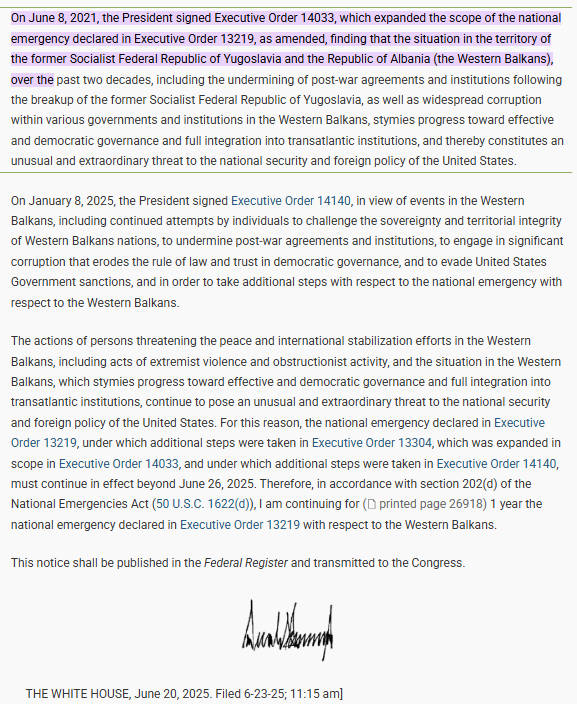AUTHOR:M.J. GDNUS
The United States has decided to extend the emergency measures related to the Western Balkans, confirming that there remains a serious threat to peace and stability in the region. The decision, signed by President Donald Trump, ensures that US sanctions remain in force for at least another year.
The emergency for the Western Balkans was first introduced in June 2001 by the George W. Bush administration. At that time, it was assessed that individuals and organizations in Bosnia and Herzegovina, North Macedonia and Kosovo posed a direct threat to the interests of the United States. Over the years, the same measures have been regularly renewed by subsequent US presidents, including Barack Obama, Donald Trump and Joe Biden.
These measures allow the US administration to freeze assets and block financial transactions of individuals and organizations that, according to Washington, threaten regional stability, support or finance violent extremism, obstruct the implementation of the Dayton Peace Agreement, or act against United Nations resolutions related to Kosovo.
The sanctioned individuals and entities are on a special list managed by the Office of Foreign Assets Control (OFAC) of the US Department of the Treasury. Among them are numerous officials and public figures, especially from Bosnia and Herzegovina and Serbia. Since 2017, the list has also included Milorad Dodik, a high-ranking official from the Bosnian entity of Republika Srpska, whom the United States considers a serious threat to regional peace.
In addition to these measures, the US has been implementing the Global Magnitsky Act for years, which targets individuals around the world responsible for serious human rights violations and corruption. Sanctions under this law include freezing assets in the US and banning cooperation with US companies.
Despite years of lobbying efforts, especially from Republika Srpska, the US administration’s position remains unchanged. Washington says that those who undermine democracy, peace, and the rule of law in the Western Balkans remain under close scrutiny and sanctions.
